Mustard Seeds (Rai): Benefits, Uses, Side Effects and More By Dr. Rajeev Singh
By Dr Rajeev Singh +2 more

Get,

to manage your symptom
Get your,


4 Cr+ families
benefitted

OTP sent to 9988776655



You’ve successfully subscribed to receive
doctor-approved tips on
Whatsapp

Get ready to feel your best.

Hi There,
Download the PharmEasy App now!!


Register to Avail the Offer
Send OTPBy continuing, you agree with our Privacy Policy and Terms and Conditions

Hi There,
Sign up on PharmEasy now!!
Trusted by 4 crore+ families

OTP sent to 9988776655



You have unlocked 25% off on medicines




Code: NU25
By Dr Rajeev Singh +2 more
Table of Contents
There have been recipes of mustard seeds from 5000 years ago that recommend mustard seeds as an appetizer. The scientific name of brown mustard is Brassica juncea, which belongs to the family Brassicaceae or Cruciferae. Its common name includes Indian mustard, oriental mustard, and sarson. During the old times, mustard was used for snake or scorpion bites in Grece. Whereas leaves, seeds, and seed oil has been used for medicinal purpose in India and China. Let us look at some of the medicinal value of mustard seeds.
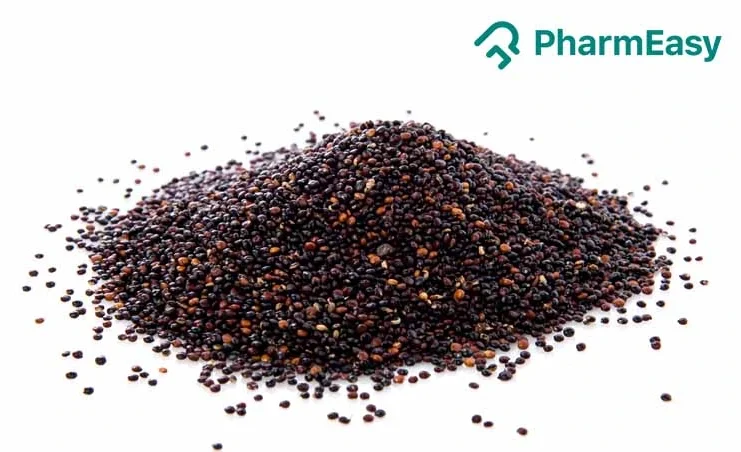
Mustard seeds may contain bioactive compounds like sterols, glucosinolates, and isothiocyanates1. Mustard seeds may also contain the following nutritional components:
Did you know?
Several studies have shown that mustard seeds are beneficial to humans, and a few properties of mustard seeds are:
Based on certain Ayurvedic literature I read, mustard seeds are mentioned as an ingredient in certain formulations used for specific purposes. These may be inducing vomiting, cleansing the cranial cavity, and administering decoction enemas. These formulations are typically recommended for conditions such as vomiting, mental disturbances, excessive gas, paleness, jaundice, and nasal congestion. It is believed that mustard seeds possess properties that might make them beneficial for addressing these issues12.
Dr. Siddharth Gupta, B.A.M.S, M.D (Ayu)
Some of the potential mustard seed uses are:
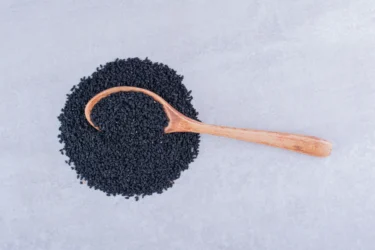
A study3 by Das et al. in 2022 showed that mustard seeds might have antioxidant activity. The antioxidant potential of mustard seeds may be due to glucosinolates and omega-3 fatty acids. These compounds may deactivate the free radicals (harmful molecules present in the body) and protect the body from various damages3.

A study4 by Bi et al. in 2015 showed that carotene and phenolic compounds in mustard seeds might be beneficial for diabetes mellitus. These compounds may release insulin from the pancreas and maintain normal glucose levels. Insulin is a hormone that helps to maintain normal blood sugar levels in the body4. Further studies are yet to be done to check if mustard seeds may be beneficial in the case of diabetes. Check your blood sugar levels regularly and consult your doctor in case of abnormal blood sugar levels.

A study5 by Ahmed et al. in 2020 showed that mustard seeds might be used for lung cancer. Glucosinolates in mustard seeds may inhibit the growth of cancerous cells and cause their death. It may also protect the DNA from damage5. However, more studies are yet to be done to see if mustard seeds may help against cancer. Cancer is a serious disease; therefore, you must consult your doctor immediately if you suspect any cancer symptoms. Do not self-medicate.

A study6 by Khan et al. in 2016 showed that mustard seeds might possess antibacterial and antifungal activity. Mustard seeds may inhibit the development of gram-positive and gram-negative bacteria like E. coli, B. subtilis, and Rhodococcus spp. In addition, mustard seeds may inhibit the activity of fungi like Aspergillus niger, Aspergillus flavus, and Trichoderma harzianum6. However, further large-scale studies are required to check if mustard seeds may act against bacterial and fungal infections. You must immediately consult your doctor if you suspect a bacterial or fungal infection.
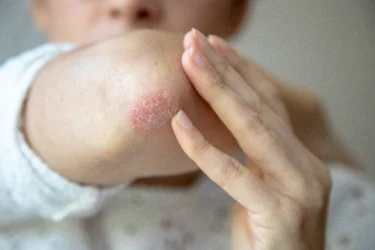
Psoriasis is an inflammatory autoimmune disease. A study7 by Yang et al. in 2013 showed that mustard seeds might fight against psoriasis. Mustard seeds may reduce inflammation caused by psoriasis7. However, more studies are required to check whether mustard seeds may benefit psoriasis. Therefore, you must consult your doctor if you suspect any symptoms of psoriasis.
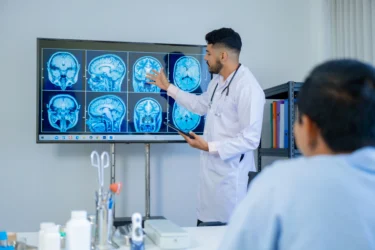
A study11 by Avallone et al. in 2019 showed that mustard seeds might be beneficial to disorders related to the nervous system. Polyunsaturated fatty acids may be beneficial for diseases like Alzheimer’s disease and Parkinson’s disease3. However, further studies are required to check if mustard seeds may be beneficial for Alzheimer’s disease and Parkinson’s disease. Therefore, you must immediately consult your doctor for neurodegenerative disorders.
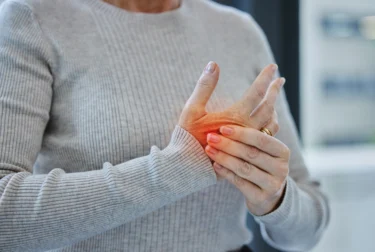
A study8 by Bhat et al. in 2013 showed that mustard seeds might help to reduce inflammation. Mustard seeds may inhibit the release of inflammatory mediators (molecules responsible for inflammation8. However, more studies are yet to be done to check the anti-inflammatory activity of mustard seeds. Therefore, you must consult your doctor if you suspect any inflammation.
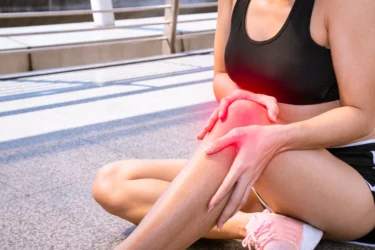
A study8 by Bhat et al. in 2013 showed that mustard seeds might help to reduce pain. It may reduce pain by inhibiting the release of molecules responsible for inflammation and the COX enzyme (that causes pain). This property of mustard seeds was measured on Eddy’s hot plate model8. However, further studies are required to check if mustard seeds can reduce pain. Therefore, you must consult your doctor if you experience pain for a prolonged period.
Though studies show the benefits of mustard seeds in different conditions, these are insufficient, and need more studies to establish the true extent of the benefits of mustard seeds on human health.
One intriguing traditional use of mustard seeds that I have come across is their application in certain conditions such as tumours of the thyroid gland and lymphadenitis. In these cases, a paste made from mustard seeds along with other herbs is recommended for external application. This practice suggests that mustard seeds may have some unique properties that are believed to be beneficial in addressing these specific health concerns12.
Dr. Rajeev Singh, BAMS
According to Ayurveda, mustard seeds can be consumed in the following ways:
You must consult your doctor before taking mustard seeds in large quantities or any herbal supplements. Likewise, consult a qualified doctor before discontinuing or replacing an ongoing modern medical treatment with an ayurvedic/herbal preparation.
Also Read: Lemon (Nimbu): Uses, Benefits, Side effects By Dr. Smita Barode
From my knowledge and observations, I have noticed that mustard seeds may have a positive effect on relieving symptoms of rheumatic arthritis. Mustard seeds contain certain compounds that possess anti-inflammatory properties, that might help reduce inflammation in the joints and alleviate the associated pain. While this is an interesting finding, it is important to note that further research is needed to fully understand and validate the potential benefits of mustard seeds for rheumatic arthritis12.
Dr. Smita Barode, B.A.M.S, M.S.
Side effects of mustard seeds, according to Monsalve et al. in 2001, are reported as follows:
If you notice any reaction from mustard seeds, seek immediate medical attention. First, consult your ayurvedic doctor who has prescribed it; doctors can find the cause and treat it effectively.
The following precautions shall be taken before consuming mustard seeds:
It is advised to consult your doctor before consuming mustard seeds if you have any pre-existing diseases.
Mustard seeds may interact with the following drugs:
You must consult your doctor before consuming mustard seeds if you are undergoing medical treatment.
There are several medicinal uses for mustard seeds. It may be used against diabetes, cancer, psoriasis, fungi, and bacteria and act as an antioxidant. It may be used for neurodegenerative disorders like Alzheimer’s disease and Parkinson’s disease. Additionally, it may reduce pain and inflammation1,3,4,5,6,7,8. However, you must consult your doctor; if you experience any above symptoms, consult your doctor and do not self-medicate.
Mustard seeds may contain carbohydrates, proteins, sugars, and fats. It may contain minerals like iron, calcium, magnesium, phosphorus, sodium, potassium, selenium, copper, zinc, and manganese. Mustard seeds may contain vitamins like Vitamin A, B1, B2, B3, B5, B6, B9, C, E and K1,2.
Mustard seeds may cause urticaria (swollen, reddened, and itchy skin), eczema on the hands (skin becomes dry and itchy), asthma, rhinitis (runny nose), angioedema (swelling of the lower layer of skin), oral pruritis (itchy mouth), and wheezing with shortness of breath9. First, meet your ayurvedic doctor who has prescribed it to you; they will be able to identify the cause and treat it effectively.
Mustard seeds may interfere with antacids (used for acidity). It may also interact with warfarin (a drug used to avoid blood clots)10. You must consult your doctor before consuming mustard seeds if you are undergoing medical treatment.
Carotene and phenolic compounds in mustard seeds might be beneficial for diabetes mellitus4. However, consult your doctor in case of abnormal blood sugar levels.
Disclaimer: The information provided here is for educational/awareness purposes only and is not intended to be a substitute for medical treatment by a healthcare professional and should not be relied upon to diagnose or treat any medical condition. The reader should consult a registered medical practitioner to determine the appropriateness of the information and before consuming any medication. PharmEasy does not provide any guarantee or warranty (express or implied) regarding the accuracy, adequacy, completeness, legality, reliability or usefulness of the information; and disclaims any liability arising thereof.
Links and product recommendations in the information provided here are advertisements of third-party products available on the website. PharmEasy does not make any representation on the accuracy or suitability of such products/services. Advertisements do not influence the editorial decisions or content. The information in this blog is subject to change without notice. The authors and administrators reserve the right to modify, add, or remove content without notification. It is your responsibility to review this disclaimer regularly for any changes.
Comments

Leave your comment...
You may also like
Comments